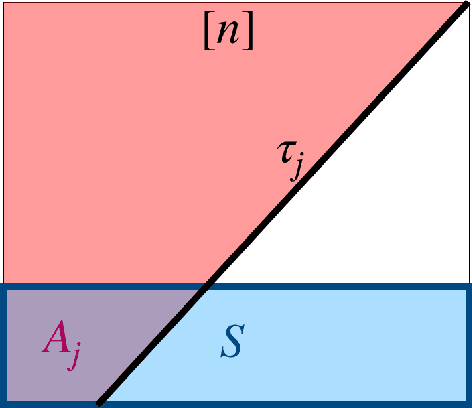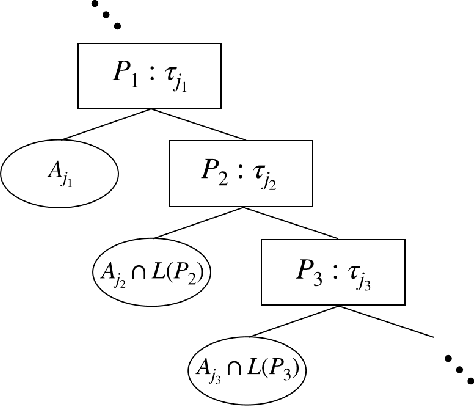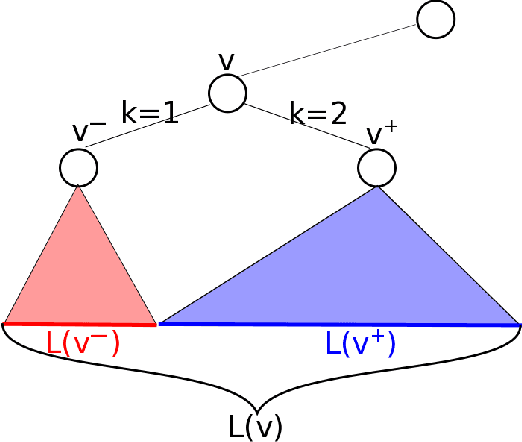A Tight Analysis of Greedy Yields Subexponential Time Approximation for Uniform Decision Tree
Paper and Code
Jun 26, 2019



Decision Tree is a classic formulation of active learning: given $n$ hypotheses with nonnegative weights summing to 1 and a set of tests that each partition the hypotheses, output a decision tree using the provided tests that uniquely identifies each hypothesis and has minimum (weighted) average depth. Previous works showed that the greedy algorithm achieves a $O(\log n)$ approximation ratio for this problem and it is NP-hard beat a $O(\log n)$ approximation, settling the complexity of the problem. However, for Uniform Decision Tree, i.e. Decision Tree with uniform weights, the story is more subtle. The greedy algorithm's $O(\log n)$ approximation ratio is the best known, but the largest approximation ratio known to be NP-hard is $4-\varepsilon$. We prove that the greedy algorithm gives a $O(\frac{\log n}{\log C_{OPT}})$ approximation for Uniform Decision Tree, where $C_{OPT}$ is the cost of the optimal tree and show this is best possible for the greedy algorithm. As a corollary, this resolves a conjecture of Kosaraju, Przytycka, and Borgstrom. Our results also hold for instances of Decision Tree whose weights are not too far from uniform. Leveraging this result, we exhibit a subexponential algorithm that yields an $O(1/\alpha)$ approximation to Uniform Decision Tree in time $2^{O(n^\alpha)}$. As a corollary, achieving any super-constant approximation ratio on Uniform Decision Tree is not NP-hard, assuming the Exponential Time Hypothesis. This work therefore adds approximating Uniform Decision Tree to a small list of natural problems that have subexponential algorithms but no known polynomial time algorithms. Like the greedy algorithm, our subexponential algorithm gives similar guarantees even for slightly nonuniform weights.
 Add to Chrome
Add to Chrome Add to Firefox
Add to Firefox Add to Edge
Add to Edge